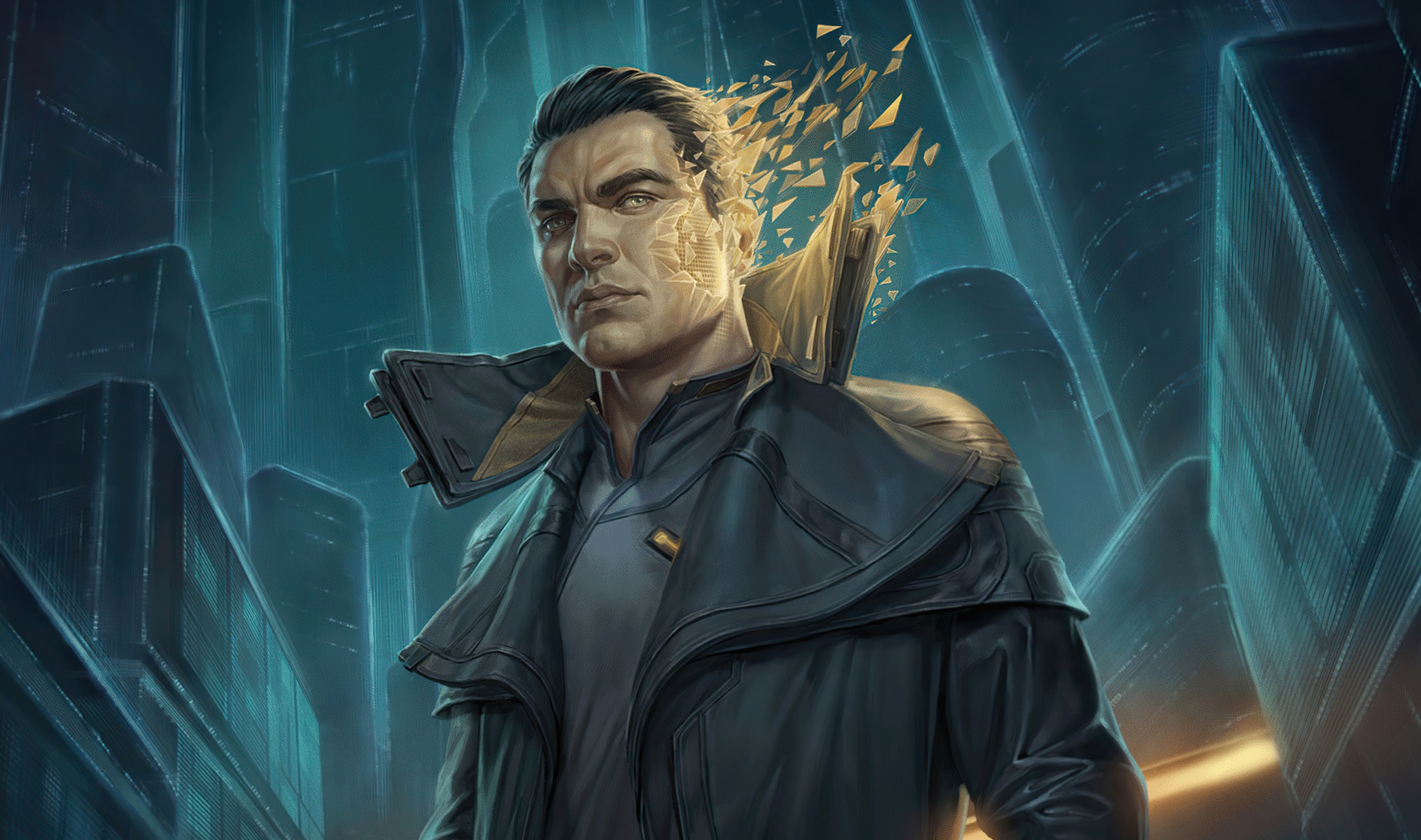Our Verdict
Gamedec is half of a good RPG and falls far short of its tantalising premise.
PC Gamer's got your back
What is it? A cyberpunk RPG where you're a gamer/detective
Developer Anshar Studios
Publisher Anshar Publishing
Release Out now
Reviewed on GTX 1080 Ti, Intel i7-8086K, 16GB RAM
Multiplayer? No
Link Official site
In the days before the ubiquity of the internet, stumped gamers would sometimes phone a tip line for a bit of life-saving advice. Nintendo's 'game counselors' in particular had a near-mythical status, and a gig that every kid dreamed of having. The reality was less impressive, less glamorous, but the idealised version—encyclopaedic knowledge of games, completed Battletoads blindfolded, probably owns a sweet leather duster—lives on in Gamedec, where they serve as fixers in virtual worlds.
VR is more than a novelty in Warsaw City, a gloomy dystopia in the 22nd century. People while away the hours in their digital realms, nurturing crops in free-to-play timesinks or duking it out on fantasy battlefields. And when something goes wrong, that's when the descendants of game counselors, the titular gamedecs, get a call. With their specialist skills, they help players who get stuck, hunt down exploits and, occasionally, solve very real murders. I always knew playing loads of adventure games would make me a great detective.
The childhood fantasies that most RPGs trade in are long established, but Gamedec's setup is a more modern brand of wish fulfilment. You're a gamer who is just so damn good at games that you can hop between virtual worlds solving problems, solving crimes, and making big wads of cash in the process. It's silly, but also grounded, creating a web of themes and crises that feel so much more relevant than any demonic or alien invasion.
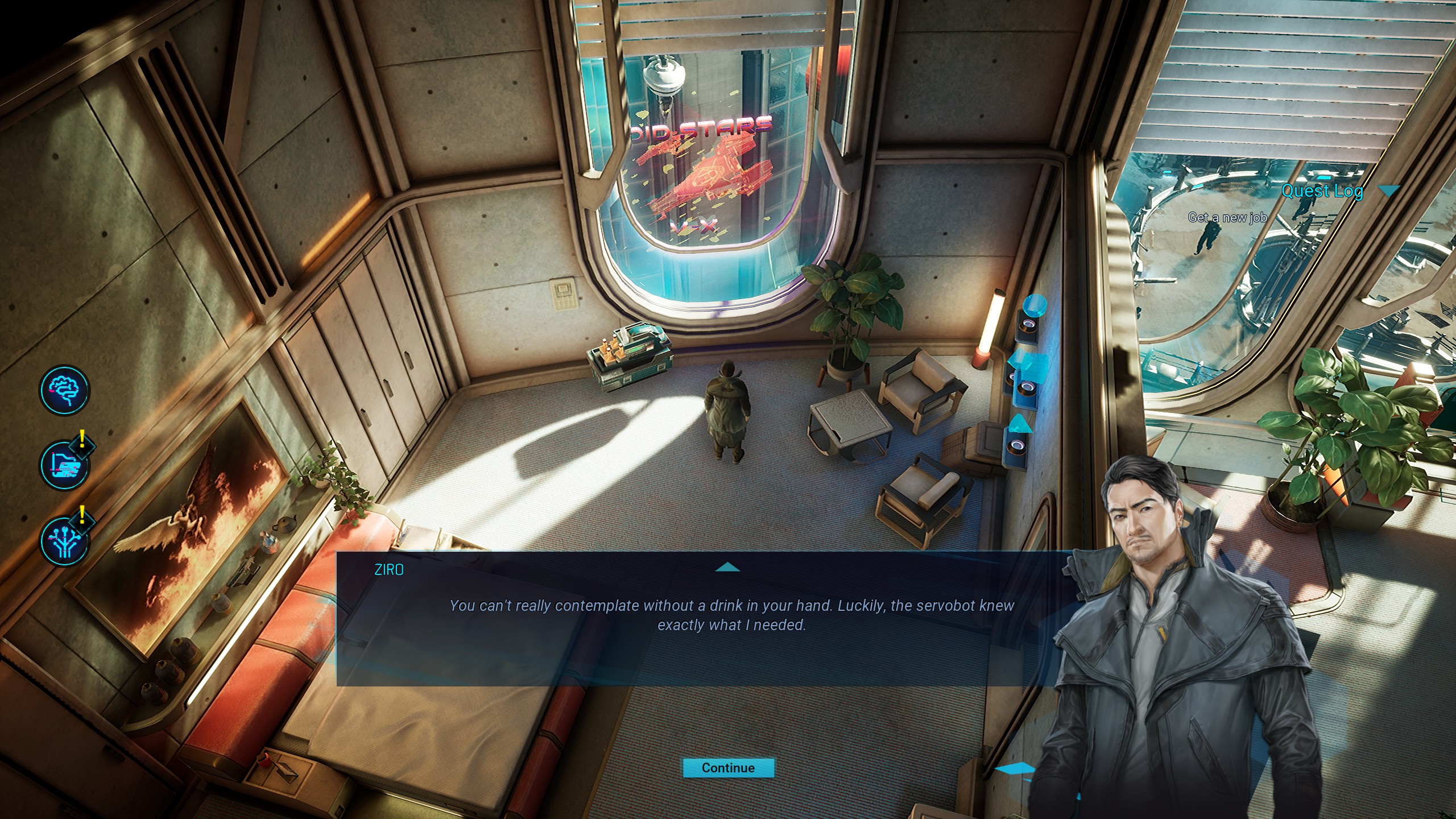
One of the first things I do when I wake up in my apartment is check my hangar in my favourite space sim and moan about not being able to afford a new ship. It's also offline for maintenance. Typical! I look out my window at the drone ads—I can make them piss off with the right skill—sad about my lack of funds, and sip some vodka that I've been gifted by a brand with the expectation that I'll mention it on social media. Against my better judgment I've selected 'infotainer' as my first profession, making me internet-famous.
Against my better judgment I've selected 'infotainer' as my first profession, making me internet-famous.
Though you can only play as a gamedec, every gamedec has a life beyond the gig, another profession, opening up new actions and dialogue options that can help break a case. These are your skills. As an infotainer, I show off and use my fame and inauthentic charm to impress my fans and make them easier to interrogate. Infotainers have other tricks, too, and expert knowledge that comes in handy in a surprising number of situations, with skill checks that let me take advantage of my online stardom cropping up all the time.
You're not stuck with a single profession, either. The way you act, even in throwaway conversations, can earn you points in four different personality types, which can then be spent on unlocking new or higher-tier professions. By the time I was done with Gamedec, I'd unlocked all of the celebrity-themed professions, and most of the other trees, making me just as deft at hacking, medicine and shaking people down.
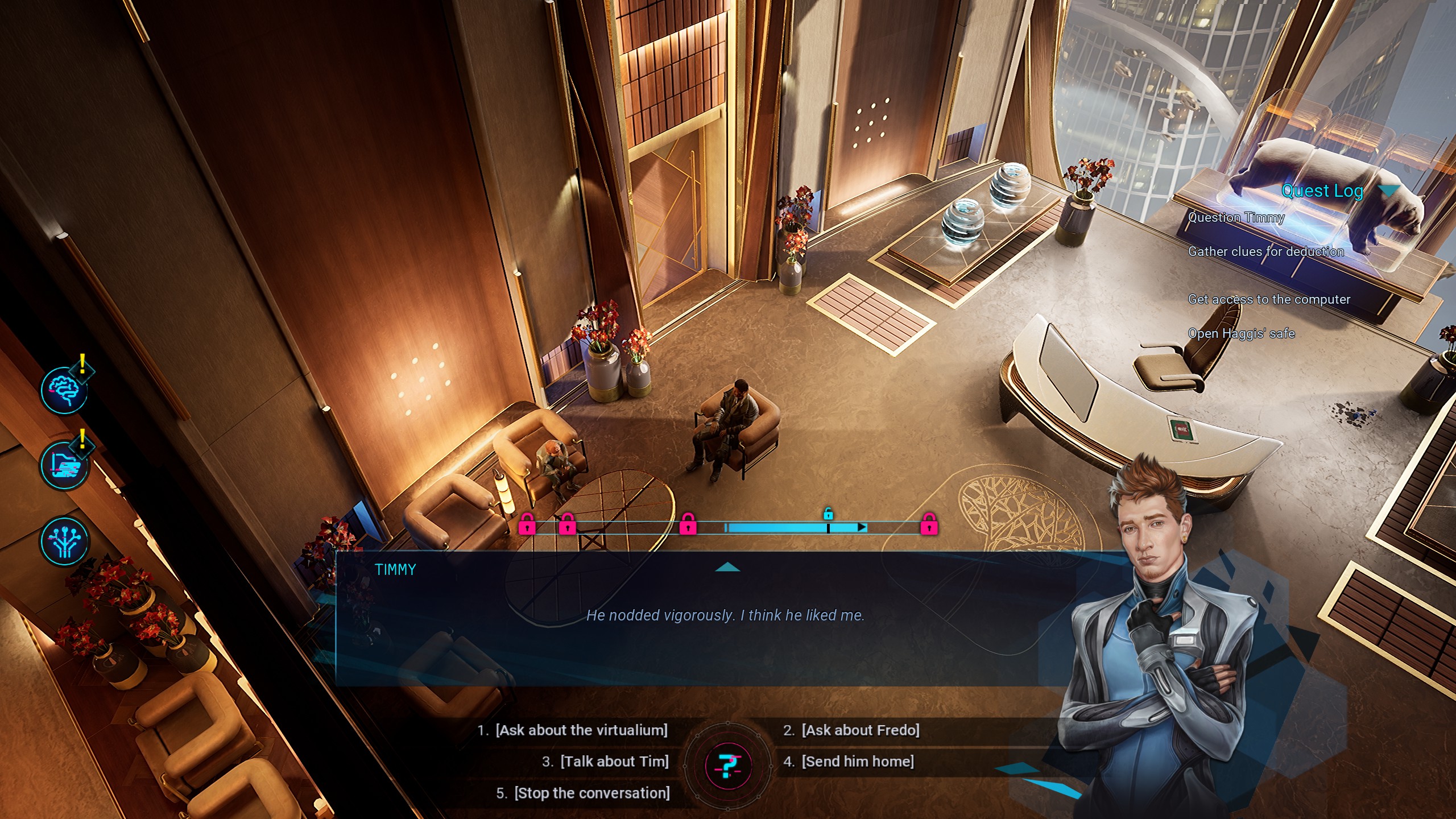
It's an intuitive system where the way you roleplay is reflected in the skills you're able to acquire, but the absence of tutorials and tooltips—tutorials were still being added when I started, but are in-game now—meant I was missing crucial context, including during character creation, that necessitated a few restarts. A bigger problem, however, is a lack of consistency, with the game sometimes making calls that are impenetrably arbitrary.
See, each of the four personality types is made up of eight themed aspects like logic, empathy, determination, and it's by making decisions that increase these aspects that you get new points and unlock professions. I've noticed several occasions where aspects go up for seemingly unrelated actions, however, while all the times I've selected the most chill, most zen, most deescalating options have done nothing to increase my calm stat.
This is naturally a bit of a problem for a game touting its extreme reactivity. And it is immensely adaptable. Everything from whole cases to incidental chats can go in wildly different directions depending on past relationships, professions, and easy-to-miss clues. And those are just the visible things—there's plenty going on in the background. A lot of the time it does react in ways that make sense, but it sometimes struggles to hold all the disparate threads together. This culminates in other oddities, like characters responding to you as if you'd said something entirely different, or responses that are missing entirely.
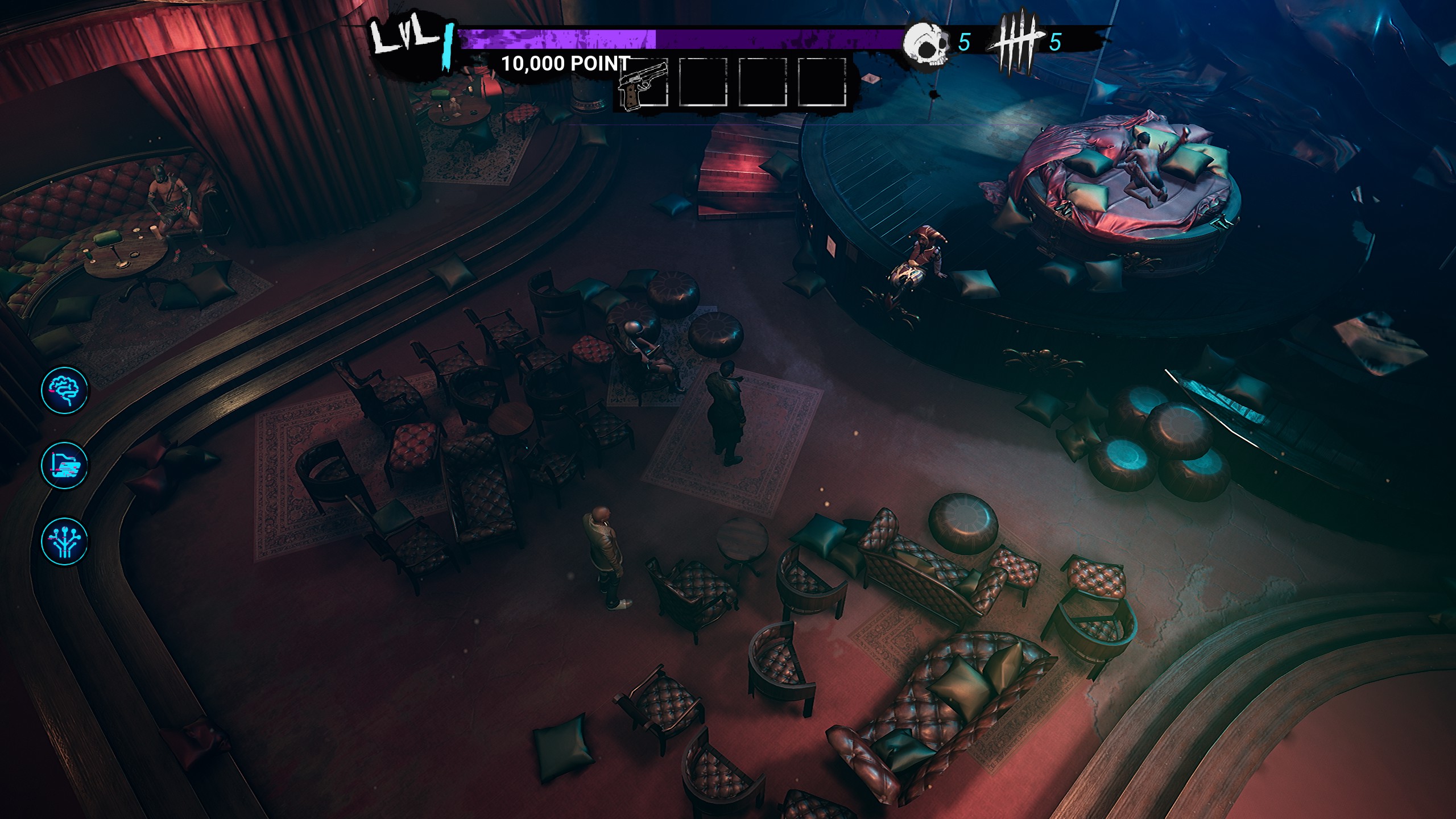
It's also very hard to keep track of all these things yourself. The codex, your massive knowledge database, is an unintuitive mess, and instead of giving you helpful, easy-to-parse details about the people you meet and places you go, it presents everything as interviews, conversations, adverts and encyclopaedia excerpts. It's typically flavour over function, and you have to sift through a lot of junk to get to the important stuff. If this was just overwritten lore, it would be easy to overlook, but Gamedec's a detective RPG, making all those extra details potentially crucial to understanding a case.
The cases are a lot more unusual than your typical RPG fare. A missing person stuck in a digital world built on fetishes, a group of virtual farmers being exploited in a free-to-play game, an MMO clan that's grown into a huge cult—they all use elements of conventional mysteries and then take them to unexpected places, skewering things like game monetisation and exploring concepts like digital self discovery.
The act of actually solving a mystery is also one of the best examples of great adventure game design. By exploring these virtual realms and doing your detective thing, you'll uncover clues that will lead to a variety of possible deductions. You're never explicitly told if a clue can be completely trusted, and you're free to make terrible deductions without judgment. It's not possible to find every clue, but it's also impossible to get stuck. If you aren't able to solve one part of the mystery, you'll still have skills that will let you solve other parts, and hopefully reach a satisfying conclusion.
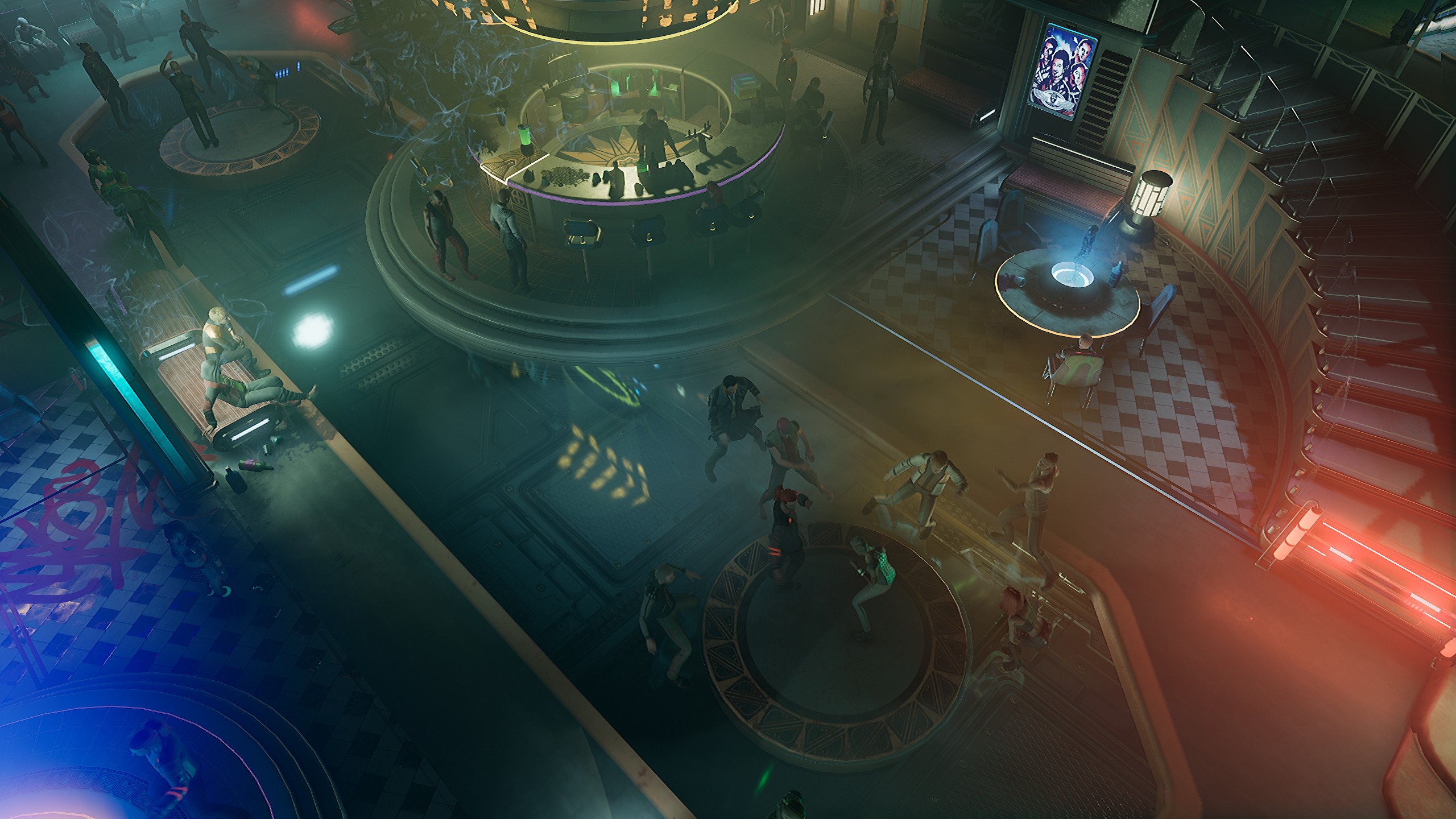
Sometimes, though, you might end up having to pick a deduction that you know is wrong, because you've not found more clues but still need to move forward. The deduction menu isn't always as free with context as it could be, either, making it harder to see how everything fits together. Important clues and even the deductions themselves are often only accompanied by single-sentence descriptions.
The cases, though creative and high concept, are accompanied by writing that unfortunately never finds its groove.
With most cases taking place in VR, solutions to conundrums are pretty exotic. You can hack people while you're having a conversation with them, use your contacts to give you premium currency to throw around or use exploits to sidestep an obstacle. You can kill, too, or be killed yourself, though there's no discrete combat system and death in VR just means you respawn at the area entrance, allowing you to quickly get back to interrogating unicorn trolls or digging up loot boxes for bribes.
The cases, though creative and high concept, are accompanied by writing that unfortunately never finds its groove. There's no real identifiable style or tone, and for every bit of confident prose there are paragraphs full of typos and awkward, stilted dialogue. Some of this could be down to a rushed English translation, which was still incomplete during my review. Mostly this meant I had to skip over some Polish codex entries, but on a couple of occasions I couldn't progress without assistance from a Polish-English dictionary.
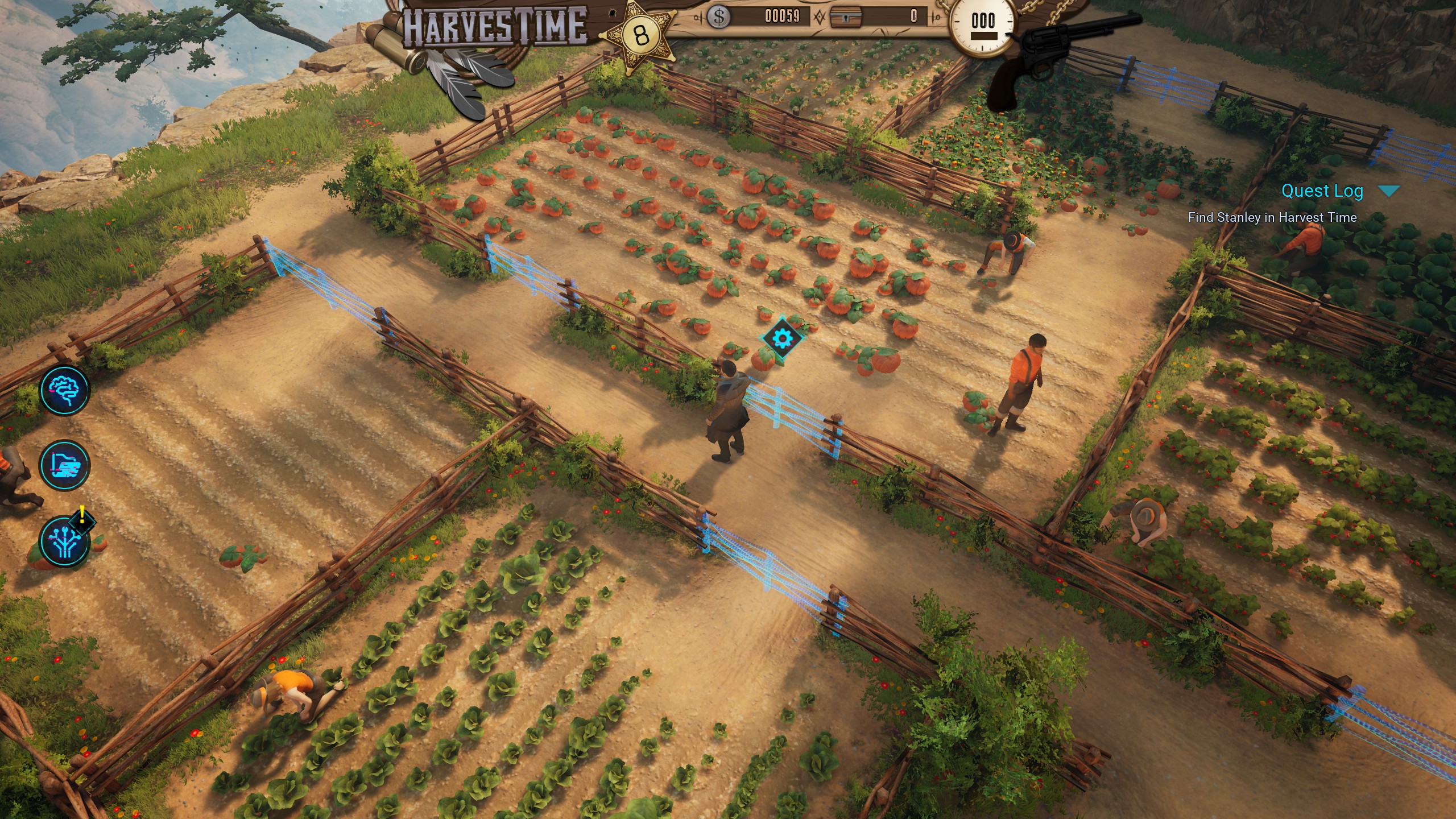
I find myself wishing it had more to say, too. While it explores timely, complex issues, it just skims the surface, more tourism than critique. And those themes are quickly subsumed by the overarching and much more conventional sci-fi plot. Throughout the first half of the game you'll start to see connections between your cases, a mystery within a mystery, but when that mystery is revealed Gamedec mostly ditches its detective conceit and starts hurtling towards a disappointing climax.
It effectively becomes a different game. First it puts you in an MMO where you can only perform so many actions before the day ends, basically giving you a time limit. And what counts as an action? Who the hell knows? Gamedec certainly doesn't. Sometimes they're tagged, sometimes they aren't. And it goes out of its way to make you burn through actions, wasting time that could be spent breaking the case. This section is full of busywork and rote tasks, a replication of a mobile MMO instead of a parody.
From there it loses its way entirely, dragging you through multiple worlds in quick succession where your freedom is massively curtailed. You're still bombarded with choices, but you're mostly reacting to the obstacles the game throws in your way, rather than getting stuck into some engaging freeform investigations. There are brief sparks of agency, but then you're yanked to the next bit. Given how brief it is compared to most RPGs—you can wrap it up in 10-15 hours—the change in pace and focus is even more jarring.
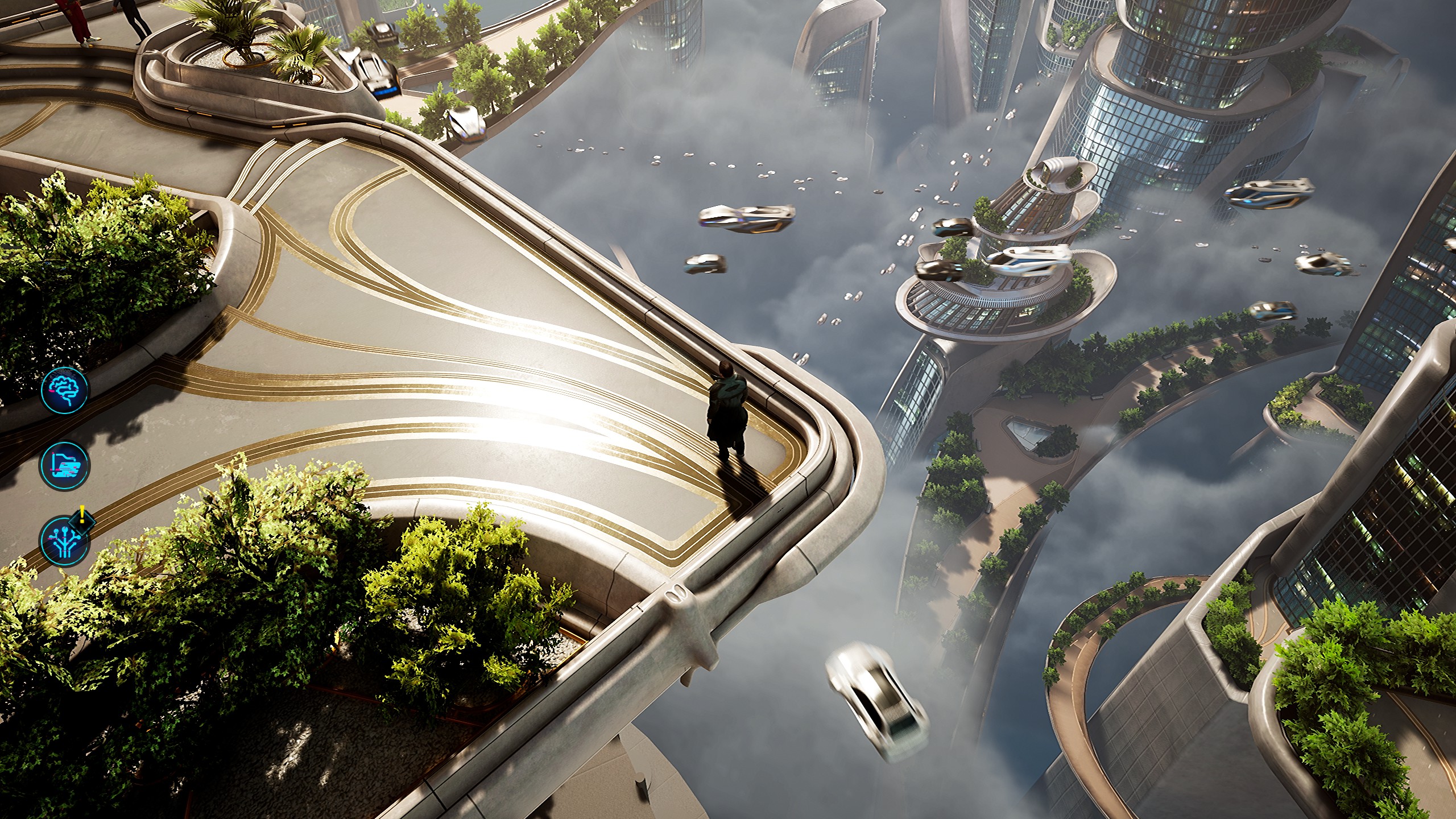
When I found myself in a dino-hunting game I got my hopes up, but I was there for all of 10 minutes, most of which was taken up by scripted sequences. I got to see one dinosaur. It was dead. "Maybe I'll be able to give it an autopsy," I prayed. No such luck. Taking on weird cases as a VR super sleuth is the seductive fantasy at the heart of the game, and the hook that makes up for its many rough edges, so Gamedec's biggest mystery might be why it veers off in this other direction.
It didn't help that bugs required me to play through several sections of the worst part of Gamedec again, though they are by no means limited to the second half. There are broken quests, conversations that trap you in a dialogue box forever, animations that leave you stuck in mid-air, characters you can't interact with but are still told to interrogate—I learned to quicksave frequently.
Gamedec had heaps of promise, but the bugs, inconsistencies and that jarring pivot leave it feeling rushed and confused. And it's all the more disappointing because it's so obvious that there's a great game in here somewhere, it just didn't get finished.
Gamedec is half of a good RPG and falls far short of its tantalising premise.

Fraser is the UK online editor and has actually met The Internet in person. With over a decade of experience, he's been around the block a few times, serving as a freelancer, news editor and prolific reviewer. Strategy games have been a 30-year-long obsession, from tiny RTSs to sprawling political sims, and he never turns down the chance to rave about Total War or Crusader Kings. He's also been known to set up shop in the latest MMO and likes to wind down with an endlessly deep, systemic RPG. These days, when he's not editing, he can usually be found writing features that are 1,000 words too long or talking about his dog.
